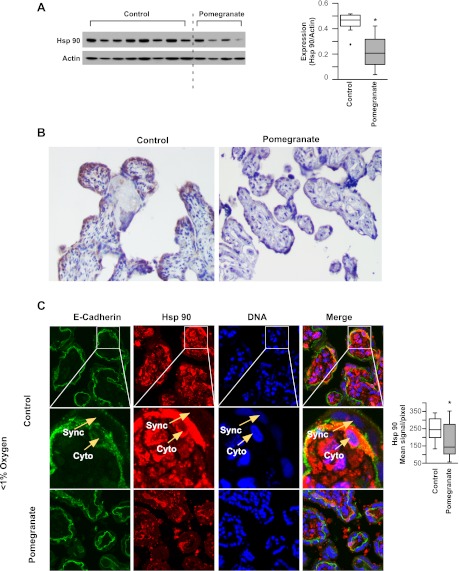Fig. 1.
Pomegranate juice reduces labor-induced oxidative stress in term human placenta in vivo and in placental explants. A: left, lysates from placentas delivered following labor by women administered pomegranate juice (n = 4) or apple juice (n = 8), as control, were immunoblotted with heat shock protein (Hsp) 90 antibody. Right, a summary graph of densitometry of the Western blot shown on the left. Student's t-test, *P < 0.05. B: representative images of immunohistochemistry for Hsp 90 of placentas from women administered pomegranate juice or placebo. C: immunofluorescence staining of Hsp 90 and E-cadherin, for trophoblast surface membranes, in placental explants from patients that were not enrolled in the in vivo study, exposed to pomegranate juice or glucose, as control, in hypoxia (<1% O2). Images in the middle show the enlarged area outlined in the row on top. Cytotrophoblasts (Cyto) or syncytiotrophoblasts (Sync) were distinguished by E-cadherin staining (green). Hsp 90 and DNA were shown in red or blue separately. The Hsp 90 signal quantification, shown on the right, was presented as mean signal per pixel (n = 12, Student's t-test, *P < 0.05).

